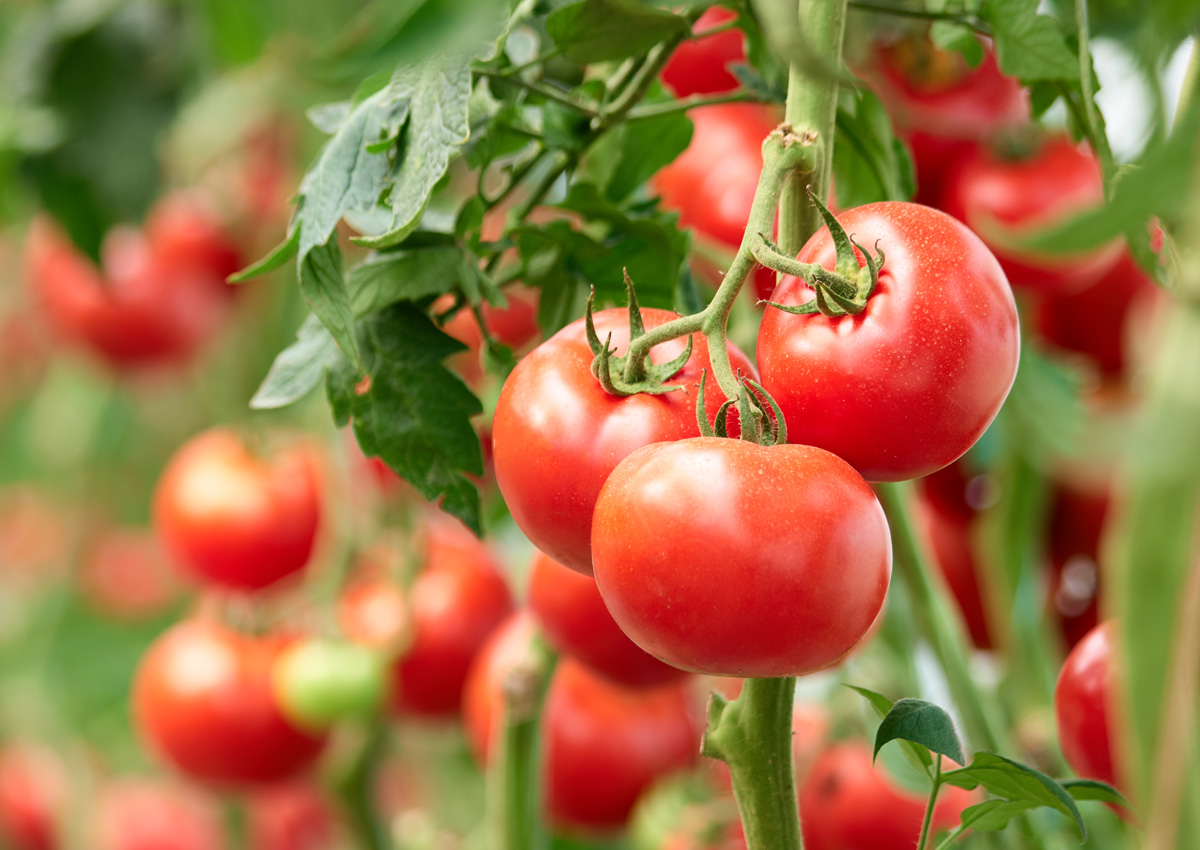
GM Tomato Enriched with L-DOPA Offers Affordable Medicine for Parkinson's Disease
December 16, 2020| |
L-DOPA is produced from tyrosine, an amino acid found in many food products. The research team inserted a gene encoding a tyrosinase, an enzyme that uses tyrosine to build molecules such as L-DOPA. This elevated the level of L-DOPA specifically in the fruit part of the plant and led to higher yields than those associated with L-DOPA production in the whole plant.
Tomato was chosen as a widely cultivated crop for scaled-up production and potentially offering a standardized and controlled natural source of L-DOPA. The John Innes Centre led team modified the tomato fruit by introducing a gene responsible for the synthesis of L-DOPA in beetroot where it functions in the production of the pigments betalains. The levels achieved in the tomato fruit, 150mg of L-DOPA per kg of tomatoes, were comparable to those observed in other L-DOPA accumulating plants, without any of the known drawbacks that have hampered plant metabolic production of the drug previously.
Parkinson's disease is a growing problem in developing countries where many people cannot afford the daily $2 price of synthetic L-DOPA . Also known as Levodopa, L-DOPA has been the gold standard therapy for Parkinson's disease since its establishment as a drug in 1967. It is one of the essential medicines declared by the World Health Organisation (WHO).
For more details, read the press release on the JIC website.
| |
You might also like:
- USDA Approves Field Trials of Gene-edited, Virus Resistant Tomatoes
- Chilean Scientists Develop Vaccine-Producing GM Tomatoes Against Hepatitis and Cholera
- GM Tomatoes may Prevent Alzheimer’s Disease
Biotech Updates is a weekly newsletter of ISAAA, a not-for-profit organization. It is distributed for free to over 22,000 subscribers worldwide to inform them about the key developments in biosciences, especially in biotechnology. Your support will help us in our mission to feed the world with knowledge. You can help by donating as little as $10.
-
See more articles:
-
News from Around the World
- ISAAA Short Course Highlights Relevance of Integrating Research, Science-based Regulation, and SciCom in Sustainable Agri Dev't
- ISAAA Shares 2019 Global Biotech Crop Adoption to Stakeholders in the Philippines and Arab Region
- Give a Gift of Knowledge
- Webinar: Biotech Crop Adoption in 2019 and Latin America's Experience
- NBMA Validates National Biosafety Guidelines on Gene Editing in Nigeria
- University of Florida Study Uncovers Vanilla DNA Mystery
- RNAi Pesticides Could Be the Next Big Tool in Agriculture
- US FDA Has Approved First GM Pig for People with Red Meat Allergies
- Chinese Scientists Develop Rice Variety Using Ion Beam Technology
- GM Tomato Enriched with L-DOPA Offers Affordable Medicine for Parkinson's Disease
-
Research Highlights
- Soybean Gene Overexpression Offers Resistance to SDS
-
Plant
- Biotech Research Perceived With Caution Globally, but Most Support Gene Editing for Therapeutics
-
Health
- WHO Calls for Actions to Encourage Acceptance and Uptake of COVID-19 Vaccines
-
Read the latest: - Biotech Updates (February 4, 2026)
- Gene Editing Supplement (January 28, 2026)
- Gene Drive Supplement (February 22, 2023)
-
Subscribe to BU: - Share
- Tweet

